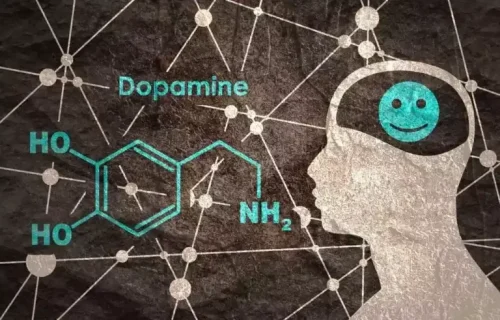
Withdrawal symptoms include sweating, shaking, nausea, and anxiety. Liver disease isn’t reversible, but you can treat some of the skin conditions it causes to help make symptoms less noticeable. According to Dr Phillips, those with rosacea should exercise extra caution. ‘Alcohol stimulates the release of histamine which dilates blood vessels in the skin,’ he explains.

Bloodshot eyes
Alcohol increases oxidative stress, leading to how alcohol affects your skin premature collagen breakdown. This means sagging skin, fine lines, and deeper wrinkles over time. Because even occasional drinking can have short-term and long-term effects on your skin. Alcohol can cause dehydration, inflammation, and damage to the skin’s barrier function, leading to premature aging, acne, and other skin problems. A healthy diet and regular exercise are essential for maintaining healthy skin. Incorporate foods rich in vitamins, minerals, and antioxidants into your diet, such as fruits, vegetables, whole grains, and lean proteins.
Can drinking raise my blood pressure?
These podcasts provide valuable insights, personal stories, and practical tips for overcoming addiction and maintaining sobriety. Alcohol can make your skin more sensitive to the sun’s harmful UV rays, increasing your risk of sunburn and skin damage. Apply a broad-spectrum sunscreen with an SPF of 30 or higher before going outside, even on cloudy days. Additionally, alcohol has been shown to increase inflammation in the body.

Finding Support: The Best Addiction Recovery Podcasts to Listen to
- While for most this means a steady flow of cocktails and wine, for me, it’s all about dancing until last call fuelled by virgin margaritas and faux bubbly.
- Ethanol, a by-product of alcohol metabolization, has been reported to vasodilate or expand blood vessels.
- In some cases, it may be the first drink; in others, it may be an allergy to something in the mixer or a specific type of alcohol.
- In addition, alcohol may reduce the risk of one condition (such as cardiovascular disease) while increasing the risk of another (such as cancer).
- Along with urticaria (see above), patients may develop low blood pressure, diarrhoea, shortness of breath, and low heart rate (anaphylaxis).
- Yes, alcohol can contribute to the development of acne by increasing inflammation and oil production in the skin.
Alcohol consumption is a common social activity that many people enjoy. However, it’s important to understand the impact that alcohol can have on your skin health. The effects of alcohol on the body are well-documented, but its impact on the skin is often overlooked. We will also discuss the connection between alcohol and acne, the importance of hydration for healthy skin, and tips for protecting your skin while drinking alcohol. It’s not likely to come as a surprise that alcohol consumption, especially in excess, can be harmful to health. Many people are aware of the short-term effects of drinking on a person’s ability to function, and they may even know about the impact of alcohol on the heart, liver, and other organs.

Maintaining Healthy Skin: Tips and Alternatives
Even if you can’t visibly see the impact of alcohol on your skin immediately, heavy drinking can still affect what’s going on inside. ‘Damage like collagen breakdown and oxidative stress can still be happening under the surface. Long-term, nobody is immune to the effects of alcohol,’ says Dr https://ecosoberhouse.com/ Injibar. While some alcohol skin damage may be relatively harmless, prolonged alcohol abuse can give rise to more serious skin complications, often intertwined with liver disease. Beyond this, alcohol and effects on skin are inflamed in those with pre-existing skin conditions. In addition to taking care of your skin after drinking, it’s important to rehydrate quickly.
Eyes
This process can lead to inflammation and oxidative stress, which can have a negative impact on your skin health. Long-term alcohol consumption can trigger persistent skin issues like increased wrinkling, permanent loss of skin elasticity, and exacerbation of inflammatory skin conditions. Some people experience rashes and hives when consuming alcohol. In some cases, it may be the first drink; in others, it may be an allergy to something in the mixer or a specific type of alcohol.
Clear spirits like vodka and gin go through rigorous distillation process to remove impurities and they contain fewer additives. ‘Cocktails are usually packed with sugar, additives and colourings, which can trigger spots and impact your complexion (when consumed in excess),’ shares Phillips. Of course, no one needs to wait for new guidelines or warning Oxford House labels to curb their drinking. Many are exploring ways to cut back, including the Dry January Challenge or alcohol-free drinks.
- If your loved one has shown signs of an alcoholic face, it may be a sign that their body is struggling to cope with the effects of alcohol.
- Given the connection between liver function and skin health, address any liver issues.
- Prolonged alcohol consumption and alcohol use disorder can lead to or aggravate a variety of skin conditions.
- As a service to our readers, Harvard Health Publishing provides access to our library of archived content.
- Inflammatory conditions such as plaque psoriasis and acne may become less severe or resolve altogether.
Alcohol Use Effects on Men’s and Women’s Health
Chronic alcohol misuse can also lead to various health conditions, such as liver disease. This can sometimes cause fluid retention in the body, which might result in facial swelling. However, this is typically a severe and long-term consequence of excessive alcohol use. If you quit drinking alcohol, you’ll see many skin improvements both immediately and over time. You’ll also enjoy multiple other health benefits, including reduced risk of disease, lower blood pressure, improved organ function, weight loss and better mental health.
Causes and Triggers
As with all things in life, moderation is key and there are things you can do to negate the effects of alcohol on your skin. ‘The NHS recommends no more than 14 units a week,’ says Dr Phillips, who also recommends going easy on the sugary cocktails and downing water in between drinks to boost hydration. Department of Agriculture suggest consumption should be no more than one alcoholic drink per day for women and two for men.
Are there advantages to walking to Suboxone Clinics rather than driving?

People may also be more likely to engage in certain health risk behaviors because of individual factors, such as when they drink excessively. This can put a person at risk of becoming ill, getting injured, or dying sooner. The more alcohol a person drinks, the greater the risk of harmful health effects. Excessive alcohol use increases your risk of developing a disease, getting injured, or dying sooner.